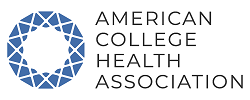COVID-19 Information
COVID-19 vaccination (primary and boosters):
To determine which vaccine or booster you should receive, please visit the CDC Vaccines for COVID-19 website.
Important
If you believe you have been exposed to COVID-19 in the last 14 days and feel ill,
please call your health care provider to discuss further. Students can call Student Health Services at 406-657-2153.
Where can I learn more about COVID-19?
About this Page
Our goal is to provide clear, concise and timely information to students, faculty, staff and visitors on what MSUB is doing to protect our community. The university is closely monitoring the COVID-19 pandemic with information from the Centers for Disease Control and Prevention and World Health Organization and in consultation with the Montana Department of Public Health and Human Services, the RiverStone Health and our own health professionals on campus.
The information provided on this website is not intended to be all-encompassing and should not be considered medical or legal advice. We encourage proper hygiene and health precautions, but we urge you to consult with a relevant expert for guidance specific to your circumstances.

